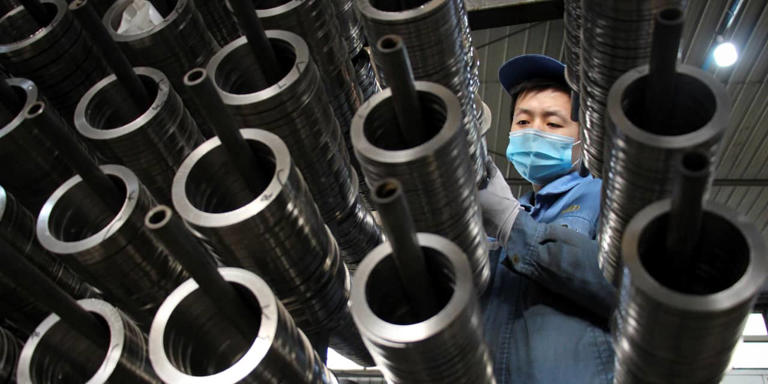The decision by U.S. and U.K. authorities to impose a ban on fresh trading of Russian-origin metals sent shockwaves through global markets, particularly impacting the prices of aluminum and nickel, which surged in London on Monday. This move comes as part of broader efforts by the Group of Seven (G7) nations to curtail Russian revenue from key commodities amid the ongoing conflict in Ukraine.
The London Metal Exchange witnessed a sharp spike in aluminum prices, with futures for delivery in three months jumping by as much as 9%, surpassing the $2,700 per ton mark before experiencing a slight pullback. Similarly, nickel prices saw a notable increase of around 4% following an initial surge in trading activity.
Treasury Secretary Janet Yellen underscored the significance of these new restrictions, emphasizing their role in targeting the revenue streams that Russia relies on to sustain its military actions in Ukraine. Effective immediately, the prohibitions prohibit any trading of aluminum, nickel, and copper from Russia after midnight on Saturday in London, except for metals produced prior to this deadline.
The impact of these measures rippled across the market, with aluminum producer Alcoa Corp. witnessing a 4.5% increase in premarket trading, indicating investor response to the heightened geopolitical tensions. Similarly, diversified miner Rio Tinto experienced a 0.5% uptick in its London-listed shares.
Analysts at Citigroup, led by Tom Mulqueen, provided insights into the implications of the ban, suggesting that it could have a positive effect on LME-traded primary aluminum, copper, and nickel flat prices. They anticipate a shift in the pricing dynamics, with the prior discount for new Russian units of these metals off-exchange potentially disappearing, leading to tighter inventory spreads in the future.
However, the Citigroup team also pointed out that the measures do not directly address the physical trade of units outside the LME warehouse system. This observation suggests that the overall scale of the price impact may be moderated by the continued availability of alternative trading channels.
Nonetheless, the ban is expected to exert downward pressure on prices for new Russian metal production compared to global benchmarks, as it limits the avenues for their sale and financing. This underscores the broader implications of geopolitical events on commodity markets and highlights the need for investors to remain vigilant in navigating the evolving landscape of global trade dynamics amidst geopolitical tensions.
